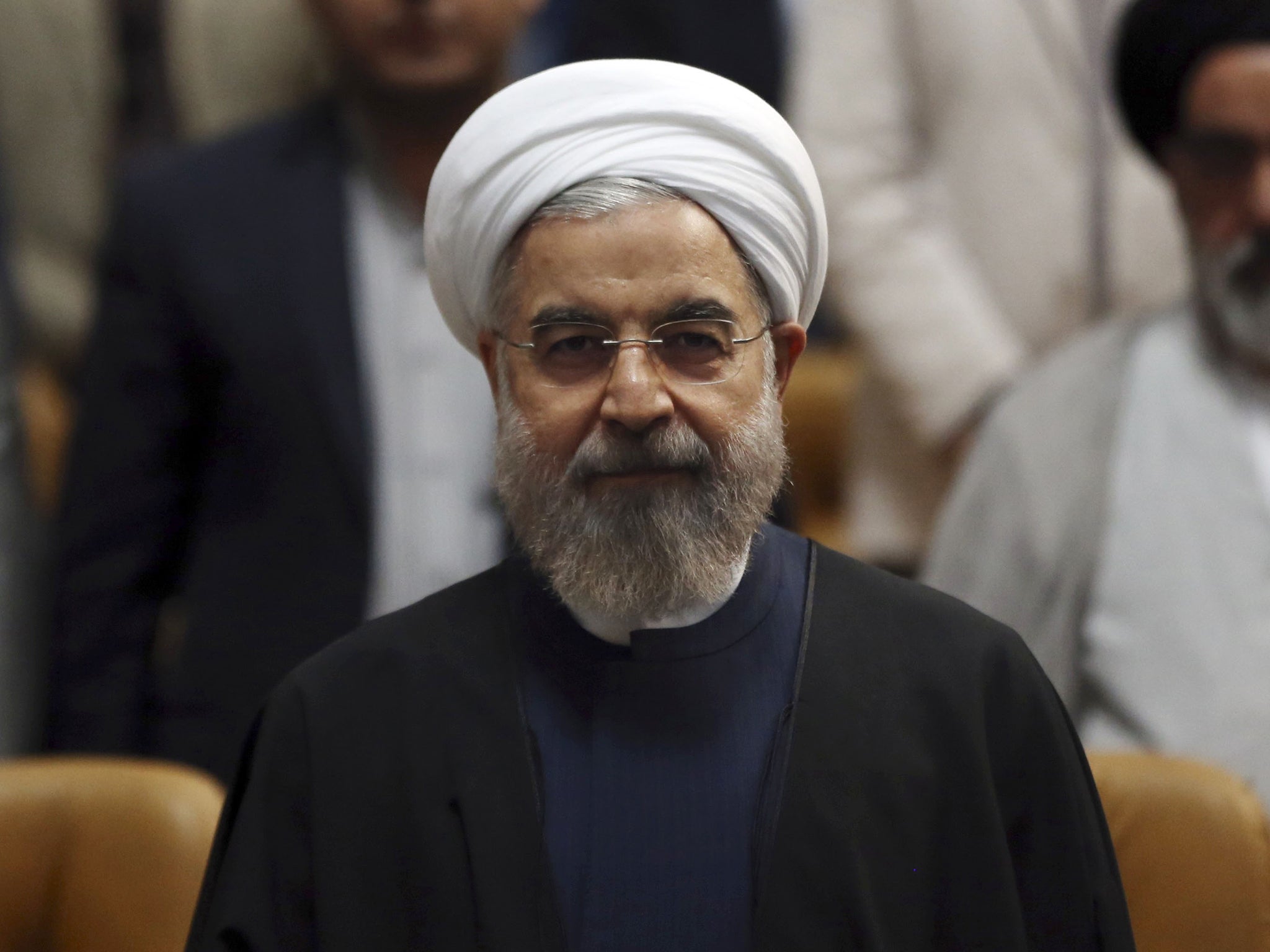Yemen crisis: Saudi bombing campaign against Houthi rebels is a war crime and genocide, says Iran's Supreme Leader Ayatollah Ali Khamenei
While Iranian President Hassan Rouhani described the air strikes as a 'mistake' and called for a ceasefire

Iran’s Supreme Leader has condemned Saudi Arabia’s air strikes against Shia Houthi rebels as “genocide” claiming that Riyadh “will not emerge victorious”, after the US warned Tehran that any support for the militants would not be tolerated.
A Sunni Muslim coalition led by Saudi Arabia began bombing Houthi rebels near the end of March causing, the UN estimates, more than 600 deaths to date. The strikes are targeting the Shia militants who late last year took Yemen’s capital, Sanaa, forcing the President to flee.
Ayatollah Ali Khamenei called the air strikes “a crime and genocide that can be prosecuted in international courts”, in the most critical statements yet from Tehran.
The Ayatollah was backed by the Iranian President Hassan Rouhani who described the air strikes as a “mistake” and called for a ceasefire, as well as a negotiated settlement to the conflict.
Speaking in the Iranian capital, Mr Rouhani said: “To the countries in the region, I say, let’s adopt the spirit of brotherhood, let’s respect each other and other nations. A nation does not give in through bombing. Do not kill innocent children. Let’s think about an end to the war, about ceasefire and humanitarian assistance to the suffering people of Yemen,” he added.
Where most executions were carried out in 2014
Show all 10Regional opponents, and the US, which has supported the Saudi air strikes, accuse Iran of backing the Houthis. Speaking this week, Mr Kerry, the US Secretary of State, said that the US would not “stand by” and allow Iran to arm the Houthis.
“There are supplies that have been coming from Iran. There are a number of flights every week that have been coming in,” he told PBS.
The fighting is in effect a proxy war between the Saudis and Iran, the Middle East’s two dominant powers. Saudi Arabia along with other Sunni countries is eager to prop up the administration of the Sunni President, Abed Rabbo Mansour Hadi. Iran has denied arming or training the Houthi rebels and has reportedly summoned the Saudi chargé d’affaires in Tehran in response to those “baseless accusations”.
The coalition air strikes have done little, so far, to check the advance of Houthi militants. The group’s fighters were reported to have taken the city of Ataq in the south, the home of the powerful Sunni Awlaki tribe and within striking distance of one of Yemen’s largest gas fields. The capture came despite heavy raids by Saudi warplanes. The Houthis have said their advances are aimed at checking al-Qaeda’s franchise in the country – al-Qaeda in the Arabian Peninsula, which is looking to exploit the power vacuum.
Aid groups have warned that the fighting is pushing Yemen closer to a humanitarian disaster and the International Committee of the Red Cross said that a plane loaded with 16 tons of medical supplies had to turn back as it missed its window to land due to the fighting.
Subscribe to Independent Premium to bookmark this article
Want to bookmark your favourite articles and stories to read or reference later? Start your Independent Premium subscription today.

Join our commenting forum
Join thought-provoking conversations, follow other Independent readers and see their replies